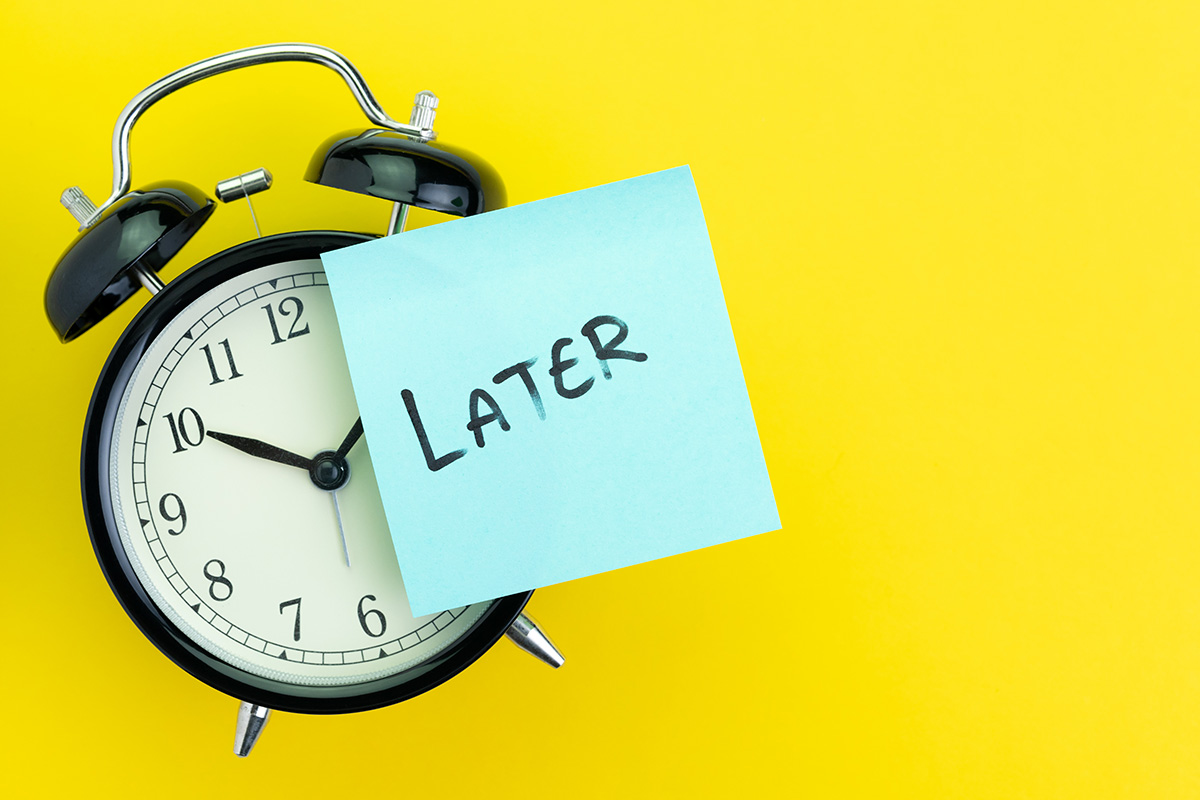
Almost everyone is guilty of procrastinating sometimes, but for some segment of people procrastination can be a real problem, preventing them from achieving their full potential. For them, it might not seem like there’s another way to do things. If this is you, there’s good news—you can take steps to make progress and stop procrastinating today (not tomorrow).
Set Concrete Goals
Goals that are too broad or unclear don’t provide a good place to start. Giving yourself actionable goals makes it easier to get going. Instead of something vague like stay active, be specific and set a goal to walk 10,000 steps a day. You can then start working toward your goal, track your progress, know when you’ve achieved success and fit into those pre-pandemic pants again.
Start Small
When you haven’t done anything to further your goals, just starting can feel like a task unto itself. Ask yourself what the smallest first action you could take is and then do it. Once you take the first step, you feel the reward of moving forward, and will tackle the next little step. Before you know it you’ll be further along than you expected and it’ll be easier to maintain your momentum. In a way, this is how literally everything ever has been accomplished, from painting the Sistine Chapel ceiling to inventing the fidget spinner.
Set a Timer
If you know what you need to do, but you’re still putting it off, set a timer for 10 minutes. Until the timer goes off, don’t allow yourself to do anything other than work on the task at hand. If this is effective for you, you can work up to tackling larger items using the pomodoro technique—working in cycles of 25 minutes then giving yourself a five-minute break. Though regular five-minute breaks might get you some weird looks if what you’re trying to accomplish is running a marathon.
Reward Yourself
Even though we can recognize that procrastinating is detrimental to us, the reality is that part of why we do it is because it’s rewarding in the short term. It feels better to not do something than to do it. To change the math on that equation, set a reward for doing the task that’ll make not doing it relatively less appealing. Writing that terribly uncomfortable email doesn’t seem so bad when afterwards you allow yourself to eat a whole pint of Cherry Garcia.
Minimize Contributing Factors
If you find you’re more likely to procrastinate in a messy or noisy environment, you can clean up, put on headphones or go somewhere else before you even try to get started. Better yet, plan ahead to have contingencies for factors that have derailed you in the past. For many people today this could mean leaving your phone in another room or maybe just throwing it in the garbage.
Consider the Cause
To conquer procrastination for good, you’ll have to look inside yourself to figure out why you procrastinate. Most often it’s not laziness but a result of anxiety, a fear of failure, or other psychological cause that keeps us at a standstill. Addressing the root of the issue takes a lot of work and that can be a little daunting, so it’s okay to focus on your task at hand and leave that part for another day.



